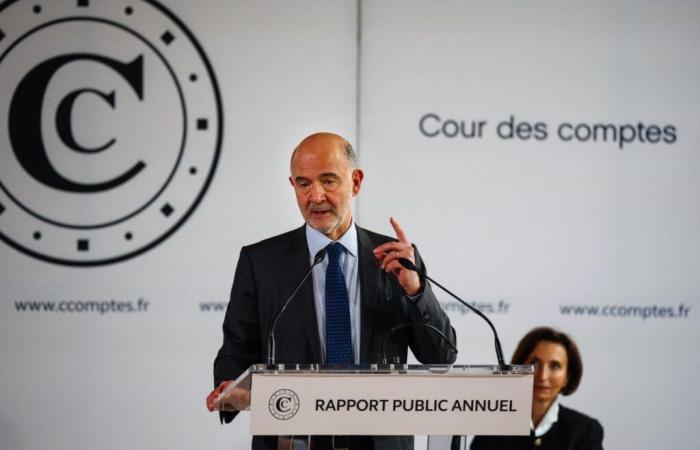Social Security continues to slide down a very bad slope. In the short term, the budget deficit is not “not sustainable”even if Michel Barnier's government manages to implement the saving measures it announced at the beginning of autumn. This is the message that the Court of Auditors delivered on Wednesday, November 6, in a written “communication” to both chambers of Parliament. Coming from an institution that has been sounding the alarm for years, the warning is not surprising, but the tone in which it is formulated appears, this time, to be particularly alarmist.
Read also | Article reserved for our subscribers Social Security Budget: “A major collective failure”, MPs fail to vote within the deadline
Read later
The problem data is known. In 2024, the balance between “Secu” revenue and expenditure should be negative at 18 billion euros, or 7.5 billion more than what was initially planned in the financing law. adopted at the end of 2023. According to the Court of Auditors, such a deterioration is of “unprecedented scale”leaving aside the slippages that have occurred in the past following economic or health crises.
The difficulties lie in two sectors of our welfare state: health insurance, with a “hole” likely to reach 14.6 billion euros in 2024, and the old age branch (–5.5 billion). The other schemes (family, autonomy, work accidents-occupational illnesses) are, for their part, slightly in surplus or close to the balance point.
“Too optimistic” government forecasts
The worsening of the situation results, in part, from poor anticipation of resources. Thus, the fraction of VAT paid to “Secu” turned out to be less than what was expected. The High Council of Public Finances had however reported in September 2023 that the government's forecasts were flawed by their nature “too optimistic”. Likewise, the wage bill, on which the contributions granted to the social protection system are calculated, has increased at a rate lower than the expectations of those in power. Result: less money in the coffers.
The other factor explaining the drift in the deficit is health insurance expenditure, which has, once again, exceeded the objectives in 2024: it should increase by 4% while the executive was counting on an increase of 3.3%. Such a gap is ” basically “ attributable to the dynamism of community care.
You have 40.25% of this article left to read. The rest is reserved for subscribers.







